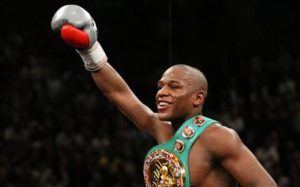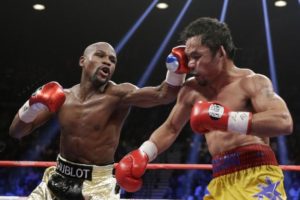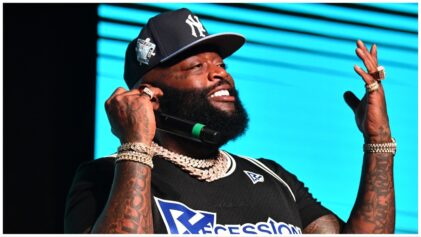
A slugfest with a harder puncher would only please those who want to see a bloodbath. It would have served Mayweather no good purpose. To expect that he would engage Pacquiao in a toe-to-toe brawl would be to not understand what makes Mayweather the greatest fighter of his era, and the most polarizing.
It is disturbing that racists took over social media after his win against Pacquiao. Hashtag.org reported that he was called the N-word by thousands of users, peaking after it was announced he won.
Further, even many Hispanic Twitter users got in on the racist action by using derogatory epithets for Black people like “Mayate,” which is a Black dung beetle in the literal term.
And, many Asian and Filipino fight fans joined the racist twitter comments by using terms like “Nognog” (which is basically the Pinoy word for “Ni**er”) and “Sunog,” a Filipino word used to degrade dark skinned people, which means “burned.”
That venom has nothing to do with boxing and everything to do with his race. These oafs are poisoned by racism, so they are unable or unwilling to see a broader picture of Mayweather, who, no doubt, has his personal warts that are indefensible.
In business, however, he has no athletic peer. This man bet on himself with calculated business moves that have wrought him more wealth than any athlete competing today… by a long shot.
And this from someone rapper 50 Cent challenged could not fluidly read. What Mayweather can do is count. And think.
The $150 million-plus he will end up earning from Saturday night all stems from his brain power on business, understanding his worth and playing off of his polarizing personality.
As a boxer, he has eclipsed anyone in the fight game.
“It’s his era, his time,” said Mike Tyson, who knows something about dominating an era. “And when somebody’s time has come, nothing can stop him. He’s in invincible mode right now. No one can stand with him at this particular moment.”
Remarkably, though, it’s how Mayweather accumulated his wealth that’s even more impressive than being 48-0.
In 2006, before he had emerged as the best in the world, Mayweather did something most people would not—he turned down a fight against Antonio Margarito that would have paid him his highest purse of $8 million and wrote a check for $750,000 to get out of his contract with boxing promotions company, Top Rank, after 10 years. At the time, that amount of cash was huge, and the risk he took was equally large.
But Mayweather saw what no one else did. By promoting his fights and controlling negotiations as the champion, he would reap more financial rewards than anyone in the history of the fight game.
Top Rank founder and CEO Bob Arum told ESPN that before leaving, Mayweather had asked, among other things, for a $20 million guaranteed purse to fight Oscar De La Hoya. 
Down the road came a year later, and Mayweather made $25 million to fight De La Hoya.
Mayweather had unprecedented control over his career. BusinessInsider.com pointed out that instead of getting paid a large guaranteed fee up front by a promoter like Top Rank—as is the norm across the sport—Mayweather staged his fights himself and earned a cut of the total revenue on the back-end.
According to The New York Times, Mayweather “earns a percentage of every ticket purchased, every pretzel consumed, every poster sold. He will earn from countries that paid for broadcasting rights and the theaters where the fight is shown.
“Mayweather, regarded as one of the best boxers in history, fights under a highly unusual financial structure, exchanging upfront risk for back-end profit while retaining total control.”
After distributors and networks get their percentage, Mayweather receives a larger piece of the remaining revenue than anyone else in the sport.
He made $80 million in 2013 to fight Canelo Alvarez—a $41.5 million purse and nearly double in pay-per-view money. Each business move he makes is as thought out as his approach in the ring.
Mayweather walked from HBO and joined forces with its rival, Showtime, for more money, of course. Showtime guaranteed Mayweather at least $32 million for each fight. He acquired a Nevada promoter’s license so he could break from Golden Boy Promotions. And with the $150 million-plus from the Pacquiao fight, he will have career earnings of over a half-billion dollars.
All this was generated by Mayweather investing $750,000 in himself.
You don’t have to like who he is or his fighting style—or his checkered personal past. But Mayweather empowered himself and seized control of his career. No one else can say that.


